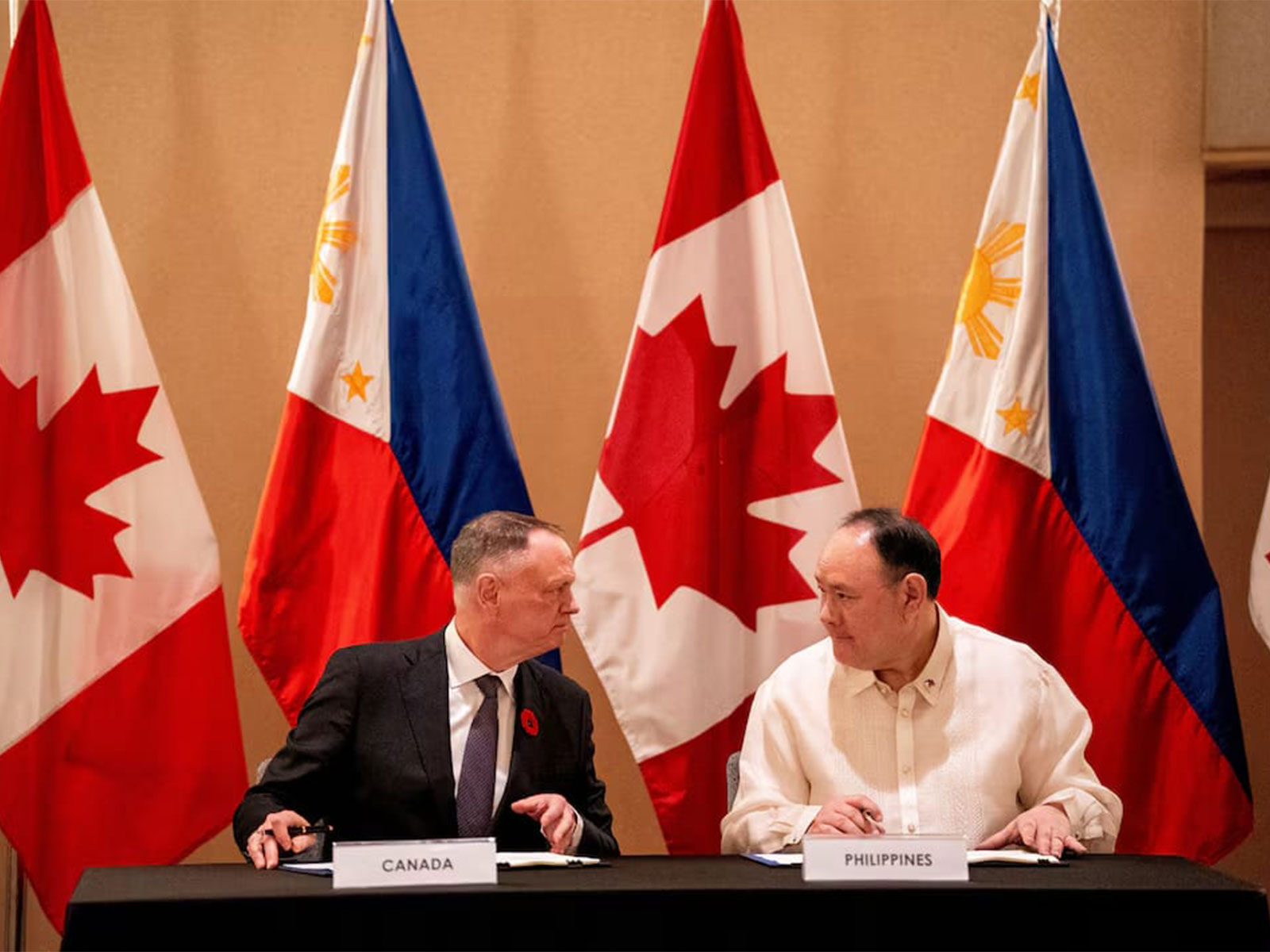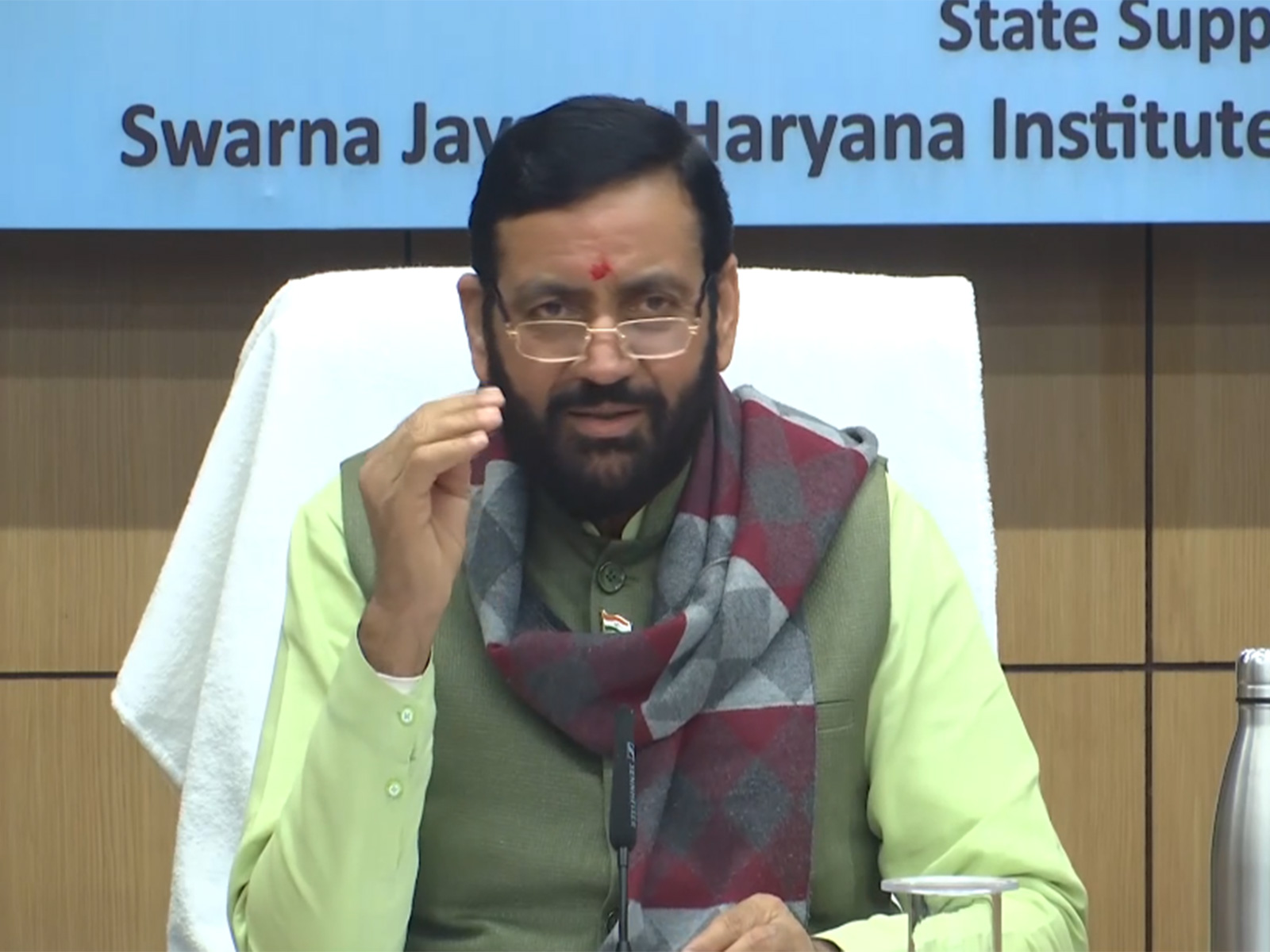Philippines, Canada to sign key defense pact amid South China Sea tensions
Nov 02, 2025

Manila [Philippines], November 2 : Canada and the Philippines, both vocal critics of China's actions in the disputed South China Sea, were set to sign a key defense agreement on Sunday that would allow their forces to hold joint battle-readiness drills and expand regional security cooperation, Philippine officials said.
According to ABC News, the agreement aims to strengthen defense ties and deterrence efforts amid growing Chinese assertiveness in the South China Sea.
Canada and other Western nations have been increasing their military presence in the Indo-Pacific to promote the rule of law and support trade and investment.
The move aligns with President Ferdinand Marcos Jr.'s push to build stronger defense partnerships to bolster the Philippines' military, which faces a far more powerful China in the disputed waters.
There was no immediate comment from Beijing, which has accused the Philippines of being a "troublemaker" and a "saboteur of regional stability" for holding joint patrols and military exercises with the United States and other countries.
China claims almost the entire South China Sea, despite a 2016 international arbitration ruling that invalidated its claims based on the 1982 UN Convention on the Law of the Sea.
ABC News reported that China has refused to recognize the ruling and continues to defy it, using powerful water cannons and dangerous blocking maneuvers against Philippine coast guard and fisheries vessels.
These actions have caused minor collisions and injuries to Filipino personnel. Vietnam, Malaysia, Brunei, and Taiwan are also claimants in the long-running maritime disputes.
Philippine Defense Secretary Gilberto Teodoro Jr. was scheduled to sign the Status of Visiting Forces Agreement with Canadian Defense Minister David McGuinty after a meeting in Manila on Sunday, according to the Department of National Defense.
The agreement will take effect following ratification.
The pact provides a legal framework for the temporary deployment of foreign troops, their weapons, and joint military exercises in each other's territories.
The Philippines first signed such an agreement with the United States in 1998, followed by Australia in 2007.
The accord with Canada will be the third such agreement signed under Marcos Jr.'s administration, following similar pacts with Japan and New Zealand.
ABC News reported that talks are ongoing with France and Singapore for similar arrangements, while efforts are also underway to explore agreements with the United Kingdom, Germany, and India.
Teodoro renewed his criticism of China's recent actions in the South China Sea during the annual Association of Southeast Asian Nations (ASEAN) Defense Ministers' Meeting with Asian and Western counterparts held in Malaysia.
He condemned Beijing's plan to establish a "nature reserve" in the Scarborough Shoal, a rich fishing area claimed by both Manila and Beijing.
"This, to us, is a veiled attempt to wield military might and the threat for use of force, undermining the rights of smaller countries and their citizens who rely on the bounty of these waters," Teodoro said.
Canada had earlier denounced China's move, saying it opposed "attempts to use environmental protection as a way to take control" of the Scarborough Shoal.
When Chinese ships forcibly drove away Philippine vessels in the area in September, Canada condemned "China's dangerous use of water cannons," which injured a Filipino fisheries officer during the confrontation.
Canadian Ambassador to Manila David Hartman said his country has "been vocal in confronting the provocative and unlawful actions of the People's Republic of China in the South China Sea and the West Philippine Sea" and "will continue to do so."
Last year, Canada and the Philippines signed an agreement on defense cooperation, followed by another pact in Ottawa in 2023 that gave the Philippines access to data from Canada's "Dark Vessel Detection System."
The system uses satellite technology to track illegal vessels that switch off their location transmitters.
According to ABC News, the Philippine Coast Guard has since used the Canadian technology to monitor Chinese coast guard ships and fishing vessels operating in the disputed South China Sea.




















